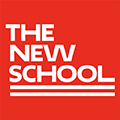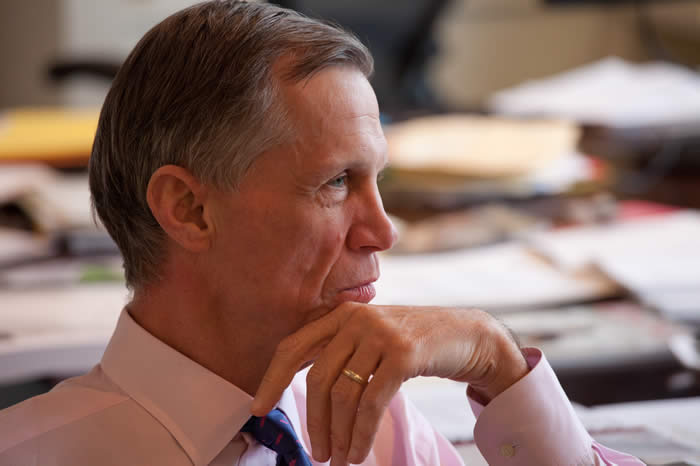TOP U.S. AND GLOBAL ACADEMIC LEADERS TO DISCUSS THE FUTURE OF HIGHER EDUCATION
|
"To prepare students for a rapidly changing world, higher education must continually reinvent itself to remain relevant," said New School President David E. Van Zandt. "The New School, which has for a century challenged the academy's status quo, is an ideal host for this wide-ranging conversation about what tomorrow's university must look like to continue to serve our students and the world." The conference will begin on Thursday, December 8, with "What Ought Universities Look Like in 20 to 30 Years," a panel discussion moderated by President Van Zandt and featuring Matthew Goldstein, Chancellor, City University of New York; Jamshed Bharucha, President, The Cooper Union for the Advancement of Science and Arts; Neil Grabois, Dean, The New School's Milano School for International Affairs, Management, and Urban Policy; former Provost, Williams College; President Emeritus, Colgate University; and Robert Zimmer, President, University of Chicago. The Future of Higher Education continues on Friday, December 9, with a day-long program of in-depth explorations of the culture, economics, and mission of universities, in America and abroad. The day's first session, "Restructuring Research Universities," opens with a discussion moderated by Andrew Delbanco, Professor in the Humanities, Columbia University, in which James J. Duderstadt, President Emeritus, University of Michigan and Jonathan R. Cole, Provost and Dean of Faculties, Emeritus of Columbia University will examine the changing mission and structure of the university model. In addition, David Scobey, Executive Dean of The New School for Public Engagement, will moderate discussions with MIT's Vijay Kumar and Henry S. Bienen, President Emeritus, Northwestern University, on digital learning technology and research university finances, respectively. The second session on December 9, "Roadmapping University Development," examines the future of universities outside the United States, and American universities' role in influencing and shaping global research. The afternoon's discussion will focus on higher education developments in China, India, South Africa, Europe, Latin America and the Middle East, with expert panelists including S. Parasurman, Director of India's Tata Institute for Social Sciences; Lisa Anderson, President of the American University of Cairo; Ahmed Bawa, Vice-Chancellor and Principal of South Africa's Durban University of Technology, Daniel Fallon, Professor Emeritus of Psychology and Public Policy, University of Maryland, College Park, and others. Admission to The Future of Higher Education is $15 for the full conference and $8 per session. The conference is free for full-time students (with valid ID) and New School faculty, alumni and staff (with valid ID). Register online at /www.newschool.edu/cps/future-higher-ed/, or by emailing [email protected]. The conference begins Thursday, December 8 at 6 p.m. and runs from 10:00am to 6:00pm on Friday, December 9. Sessions will be held in The New School's John Tishman Auditorium at 66 West 12th Street between Fifth and Sixth Avenues. The complete program, speakers' bios, and abstracts can be reviewed online at www.newschool.edu/cps/future-higher-ed. Papers presented at the conference will appear in a special conference issue of Social Research: An International Quarterly. The conference is organized by Arien Mack, Director of the Center for Public Scholarship, and Alfred and Monette Marrow Professor of Psychology at The New School for Social Research. This conference is made possible by generous support from the Carnegie Corporation of New York and the Ford Foundation. About Social Research: An International Quarterly About the Center for Public Scholarship About The New School |
 |
COMMUNICATIONS AND EXTERNAL AFFAIRS |
| 79 Fifth Avenue, New York, NY 10003 www.newschool.edu |
PRESS RELEASE |
Media Contact: Sam Biederman, |
|
|
